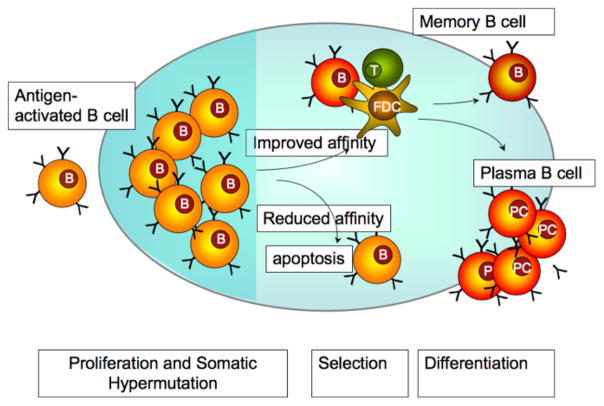Figure 1.
Affinity maturation of antigen-stimulated B lymphocytes. Upon binding to antigen the B lymphocytes enter germinal centers (GC) and undergo rapid proliferation and somatic hypermutation (in the dark zone). The somatic hypermutations cause random changes in the affinity of the antibody to the original antigen. B lymphocytes with higher affinity to the antigen, can interact successfully with GC T cells and follicular dendritic cells (FDCs) and receive survival signals from them (selection in the light zone). These B lymphocytes eventually differentiate into antibody secreting plasma B cells or memory B cells (Figure adapted from [120]).

